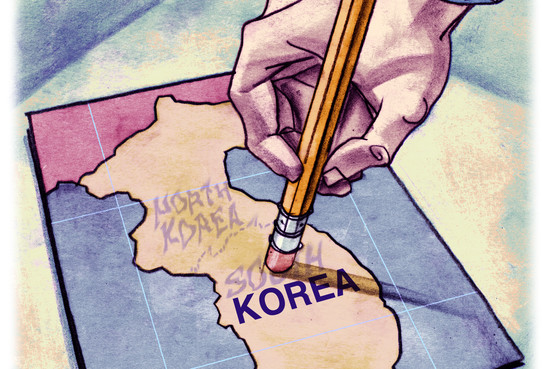by STEVE HAN | @steve_han
editor@charactermedia.com
South Korea’s top financial regulator said Tuesday that rebuilding North Korea’s moribund economy after an eventual reunification would cost about $500 billion, which the government says can be raised without increasing taxes, according to Yonhap.
Although South Korea’s Financial Services Commission (FSC) chairman Shin Je-yoon said that the figure of $500 billion is open for revision, it would be the estimate needed to stimulate North Korea’s depressed economy. FSC’s blueprint added that the estimated sum would be sufficient to increase North Korea’s gross domestic product (GDP) per capita from last year’s $1,251 to $10,000 in 20 years. North Korea’s current GDP total of $31 billion is equivalent to South Korea’s 1971 GDP and just 2 percent of its GDP from last year.
FSC said that South Korea would also spend an additional $175 billion on North Korea’s infrastructural and industrial developments.
South Korea plans to raise half of the estimated fund from its public financial institutions, notably the Korea Development Bank and Korea Exim Bank, in a similar manner to what the Germany’s government-owned bank, the KfW, did for the German reunification in 1990.
These institutions will play a similar role to Germany’s government-owned bank, the KfW, which provided a bulk of the finance into the West and East Germany reunification in 1990.
The rest of South Korea’s estimated funds could be financed by commercial banks, tax revenues, development projects in North Korea and overseas development aid (ODA).
“In the initial stage of unification, the government will lead the North Korean development by using state funds and projects, and then the ODA and private investments can be utilized,” said Shin. “We have to consider many factors, including the economic gap between the two countries and macroeconomic variables before introducing a currency system to the North.”
Under current circumstances, discussions of Korean reunification’s costs are practically moot as serious talks between the two Koreas about merging have not taken place since the Korean War. The two countries remain technically at war as the Korean War ended in 1953 with an armistice and not a peace treaty.
President Park Geun-hye said in a speech last year that a reunification would be a daebak, which roughly translates to “bonanza” in English, as the South’s capital and technology would go hand in hand with the North’s human and natural resources. However, her comments were met with scathing criticisms from the North, which accused her of “pipe-dreaming.”
Featured image courtesy of Abihollow







